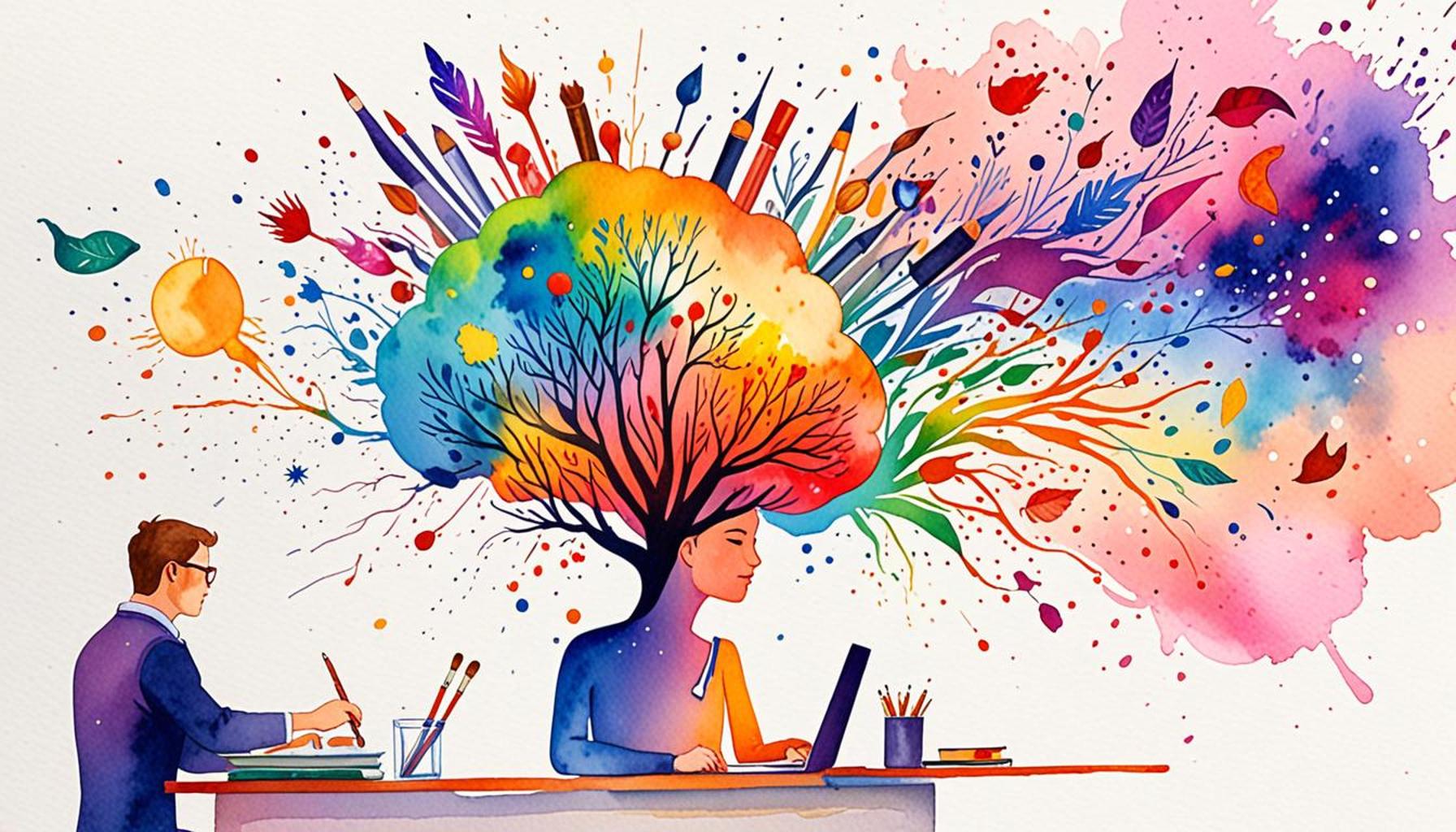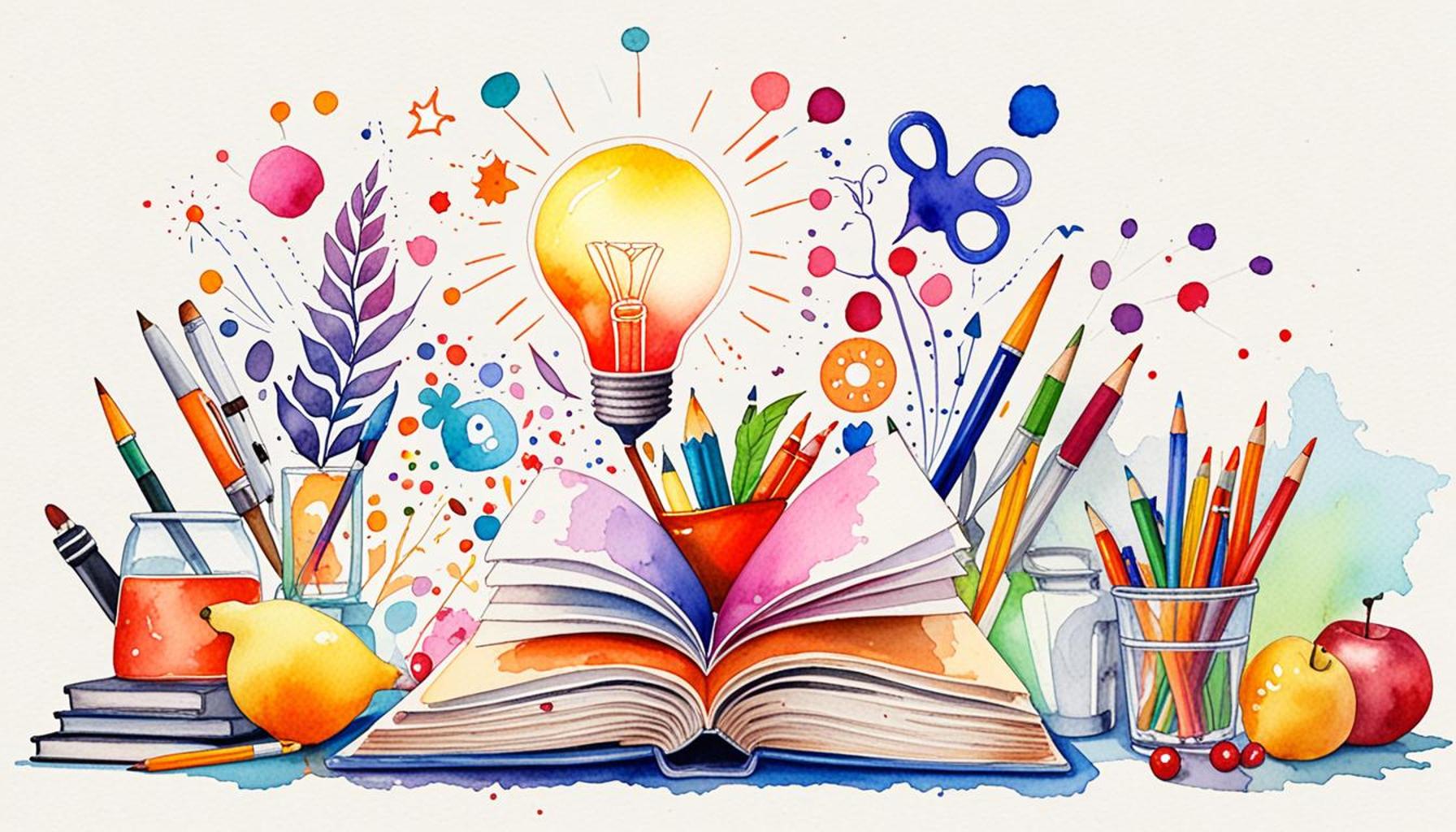Continuous Learning Key to Building a Growth Mindset Success

Embracing the Journey of Growth
In today’s fast-paced world, continuous learning has become not just a preference but a necessity for personal and professional development. Individuals who adopt a growth mindset understand that challenges are opportunities for growth, and that knowledge can be expanded beyond formal education.
This mindset fosters resilience, adaptability, and a zeal for improvement, ultimately driving success in various aspects of life. As we delve deeper into this enlightening topic, we will explore how embracing a culture of learning not only enhances one’s skillset but also nurtures a fulfilling and progressive approach to challenges.
What You Can Expect
In this article, we will uncover the Top 5 techniques essential for cultivating a continuous learning habit that aligns with the growth mindset philosophy. These techniques will serve as valuable resources for anyone aspiring to elevate their personal or professional growth.
ADDITIONAL INSIGHTS: Expand your understanding here
Top 5: The Importance of Lifelong Learning in Building a Growth Mindset
In our rapidly changing world, where transformation is the norm rather than the exception, the concept of a growth mindset has gained immense importance. At its core, a growth mindset is built upon the belief that our abilities and intelligence are not static. Instead, they can be developed over time through dedication, effort, and openness to learning. A critical component of nurturing this mindset is the principle of lifelong learning. Lifelong learning embodies a continuous, self-driven pursuit of knowledge across various domains of life.

5. Enhanced Problem-Solving Skills
Lifelong learning significantly boosts our capability to tackle problems effectively. As we engage in diverse educational activities—be it through books, online courses, or real-world experiences—we expose ourselves to a variety of perspectives and problem-solving strategies. Each encounter with a new concept introduces us to alternative ways of thinking, ultimately enhancing our cognitive flexibility.
This continuous exposure builds a toolkit of approaches that can be applied when faced with challenges. Take, for example, an engineer who constantly learns about emerging technologies. This proactive learning approach equips them with innovative solutions, enabling rapid adaptation to new challenges in their field. Consequently, lifelong learners often excel in collaborative environments, making them invaluable team members whose adaptability drives success.
4. Increased Motivation and Engagement
The process of learning is inherently stimulating. Engaging in continuous education fosters a curios mindset, compelling individuals to explore topics beyond their comfort zones. This exploration not only satisfies intellectual curiosity but also ignites a passion for lifelong discovery.
Consider the journey of an artist who tackles unfamiliar art forms. Through this expansion of skills, they often find renewed enthusiasm and creativity. This intrinsic motivation—born from exploring new territories—bolsters resilience when faced with artistic challenges. We can observe a ripple effect as this newfound resolve permeates other areas of their life, driven by the joy and fulfillment that come with acquiring knowledge. Such dynamic learning pursuits keep individuals engaged, further reinforcing the growth mindset.
3. Development of New Skills
In today’s competitive landscape, the ability to acquire new skills quickly is paramount. As industries evolve at a dizzying pace, those committed to lifelong learning are better positioned to ride the waves of change. By embracing continuous education, individuals significantly boost their employability and remain relevant in shifting professional landscapes.
For instance, consider professionals in the field of information technology. As technology relentlessly evolves, there is a constant demand for fresh expertise in areas such as cybersecurity, data science, and artificial intelligence. Lifelong learners in this sector who regularly update their skills through online courses and certifications are more likely to excel and achieve career advancement. This proactive skill development engenders a sense of accomplishment and confidence, further reinforcing the belief that abilities can, indeed, be cultivated over time.
2. Fostering a Resilient Attitude
Lifelong learning serves as a powerful catalyst in building resilience. When individuals step out of their comfort zones to engage with challenging concepts or unfamiliar subjects, they naturally encounter failures and setbacks. However, within the growth mindset framework, these hurdles are viewed not as insurmountable obstacles but as valuable learning opportunities.
Take entrepreneurs as an illustrative example. In the unpredictable world of startups, setbacks are inevitable. Entrepreneurs who embody lifelong learning recognize these failures as stepping stones, refining their business strategies and innovating in the process. Studies indicate that individuals with a growth mindset display enhanced resilience; they not only persevere in the face of adversity but often chart paths to greater achievements. Consequently, the resilience developed through lifelong learning becomes a cornerstone of both personal and professional growth.
1. Cultivating a Lifelong Growth Mindset
At the heart of lifelong learning lies the cultivation of a sustained growth mindset. This mindset, grounded in the philosophy of perpetual personal and professional development, paves the way for a fulfilling and purposeful life.
By prioritizing progress over perfection, lifelong learners embody a mindset that encourages goal-setting and achievement through persistent effort. This opens the door to exploration, creativity, and calculated risk-taking. Imagine a scientist constantly pushing the boundaries of their research. Their commitment to lifelong learning enables them to embrace challenges as opportunities for discovery, cementing their dedication to constant self-improvement.
Embracing this mindset translates into a life rich with learning, personal evolution, and unyielding commitment to growth. Lifelong learning not only shapes one’s identity as a resilient and curious individual but also fortifies the resolve to navigate life’s complexities with skill and grace.
In conclusion, integrating lifelong learning into our daily lives provides profound benefits across the spectrum of personal and professional development. Beyond enhancing problem-solving skills and fostering resilience, it fuels motivation and facilitates the acquisition of new skills. Most critically, it lays the foundation for a lifelong growth mindset, empowering individuals to embrace challenges and navigate an ever-evolving world. The journey of learning never truly ends, and by actively engaging in continuous education, we take charge of shaping our own potential, forging a path toward a brighter, more adaptable future.
| Category | Description |
|---|---|
| Resilience | Continuous learning fosters resilience, enabling individuals to bounce back from failures and challenges. This mindset prepares them to face adversity with a constructive attitude. |
| Adaptability | In a world that is constantly changing, the ability to adapt is crucial. The ongoing acquisition of knowledge equips individuals with the skills necessary to adjust to new circumstances efficiently. |
| Innovation | A commitment to continuous education encourages innovation. Individuals who engage regularly in learning are more likely to develop new ideas and contribute significantly to their fields. |
| Personal Fulfillment | Pursuing knowledge enhances personal fulfillment. Lifelong learners often find joy and satisfaction in their educational pursuits, enriching their lives both personally and professionally. |
As we continue to dive into the significance of continuous learning, it becomes evident how closely it ties into the development of a growth mindset. This concept isn’t merely theoretical; it invites an active engagement with the world around us, prompting individuals to seek out new experiences and learning opportunities. For instance, research has consistently shown that individuals who adopt a mindset of growth are more likely to take on challenges and view difficulties as opportunities for growth rather than obstacles.Incorporating new skills not only enhances professional qualifications but also expands an individual’s ability to think critically and solve problems creatively. Moreover, with the pace at which industries evolve today, those committed to continuous learning are often at the forefront of innovation. They are positioned to capitalize on new trends and technologies, ensuring they remain relevant in their professional fields.Additionally, participation in workshops, seminars, and courses creates networking opportunities with peers and mentors, strengthening community ties while facilitating knowledge sharing. The exchange of ideas fosters a collaborative learning environment where participants can inspire and challenge each other, ultimately contributing to collective growth.Thus, we can clearly establish that continuous learning not only elevates individual capabilities but also enhances the wider community by fostering a more innovative and resilient society. Each of these elements plays a vital role in cultivating a growth mindset, underscoring the importance of lifelong education in today’s dynamic landscape.
YOU MAY ALSO LIKE: Read this other article
Frequently Asked Questions about Continuous Learning and Growth Mindset
What is continuous learning, and why is it important for a growth mindset?
Continuous learning refers to the ongoing, self-motivated pursuit of knowledge and skills for both personal and professional development. It is important for a growth mindset because it encourages individuals to adopt a dynamic approach towards challenges, viewing them as opportunities to learn and grow. By engaging in continuous learning, individuals develop resilience and adaptability, essential traits in today’s rapidly changing world.
How does a growth mindset influence an individual’s ability to learn continuously?
A growth mindset, as opposed to a fixed mindset, is based on the belief that talents and intelligence can be developed through effort, good strategies, and input from others. This mindset fuels motivation and achievement, fostering a desire to learn continuously. People with a growth mindset are more likely to embrace failure as a part of the learning process, using it as a stepping stone to achieve greater success over time.
What are some effective strategies to foster continuous learning?
Effective strategies for fostering continuous learning include setting personal learning goals, seeking feedback, enrolling in courses, and reading extensively on diverse subjects. Additionally, engaging in communities of practice and utilizing technology such as online platforms and apps for learning can significantly enhance one’s learning journey. The key is to maintain curiosity and openness towards new experiences and ideas.
Can continuous learning impact professional success?
Yes, continuous learning can have a significant impact on professional success. As industries evolve, the ability to acquire new skills and adapt to new methodologies becomes crucial. Continuous learners are often more competitive in the job market, as they demonstrate a proactive approach to self-improvement and innovation. This can lead to greater career advancement opportunities and job satisfaction.
Does continuous learning have any psychological benefits?
Continuous learning is associated with numerous psychological benefits. It keeps the brain active and engaged, potentially delaying cognitive decline. Moreover, learning new things can boost confidence and create a sense of accomplishment, contributing to overall mental well-being. By staying intellectually stimulated, individuals may also improve their capacity for critical thinking and problem-solving.
SEE ALSO: Click here to read another article
Conclusion: Embracing Continuous Learning for Growth
The journey towards cultivating a growth mindset is one intrinsically linked to the notion of continuous learning. Through this paradigm, individuals are empowered not only to adapt to change but to thrive amid uncertainty. Key takeaways from this discussion emphasize the critical role that lifelong learning plays in enhancing personal and professional development.
A significant aspect of fostering a growth mindset is the understanding that obstacles are opportunities for learning rather than insurmountable barriers. By reframing challenges as stepping stones, individuals can embrace mistakes as a core component of the learning process. This perspective transforms setbacks into powerful catalysts for growth, encouraging resilience and perseverance.
Moreover, curiosity stands as a vital element in driving continuous learning. A curious approach prompts questions and exploration, feeding an ever-evolving understanding that goes beyond the acquisition of knowledge. It nurtures creativity and innovation, allowing for fresh perspectives that are crucial in an increasingly complex world.
Additionally, collaboration and feedback are indispensable in the realm of a growth mindset. Engaging with others fosters a rich environment for learning, where feedback provides constructive insights and sparks further development. The sharing of diverse ideas enhances the learning experience, propelling everyone involved toward collective betterment.
Ultimately, the commitment to continuous learning fuels a growth mindset by cultivating an adaptive and open-minded approach to life. This mindset not only enhances personal growth but also contributes to a more dynamic and resilient society. As we move forward, it is imperative to prioritize this ongoing learning process, armed with curiosity and a readiness to learn, ensuring that the journey to personal and professional fulfillment remains both engaging and enriching.


